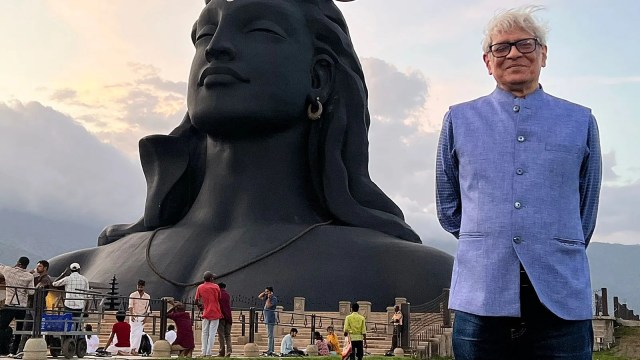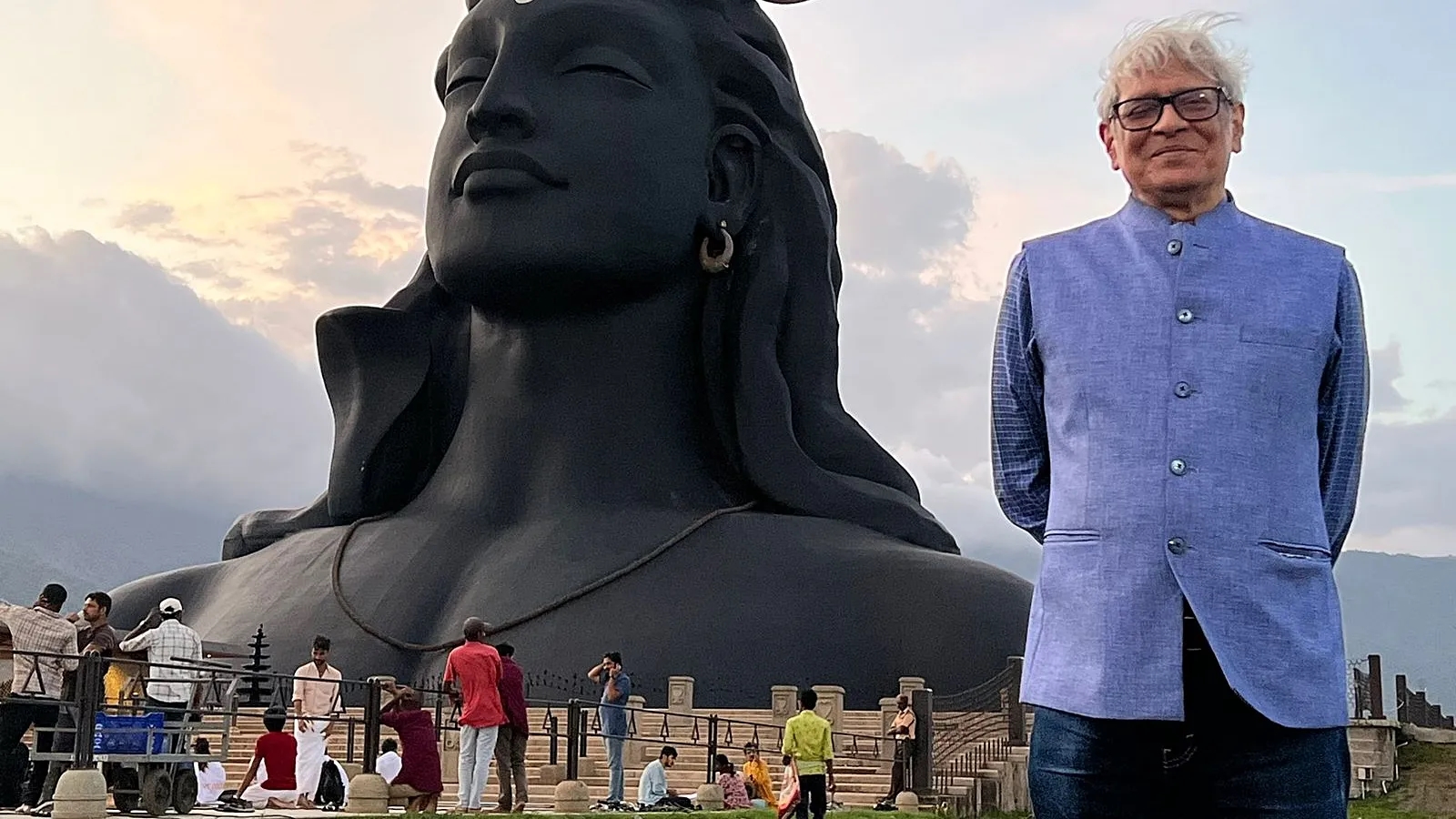
I had the pleasure of working under Bibek Debroy for five years as a part-time member of the Economic Advisory Council to the PM. During that time, one of the most revealing conversations I had with him was not about economics — it was about cricket.
I had just finished talking about the virtues of globalisation and free trade at a conference in Pune in February 2020 — a time when the US and China continued to ratchet up their bilateral trade war. My presentation harked back to familiar arguments: No country had ever grown at 7 per cent or more for decades — like India needed to do — without relying on strong exports and global engagement. Exports, in turn, needed imports and, as a foundational theorem of international trade had shown, an import tariff was equivalent to an export tax. The challenge for India was to navigate and overcome the de-globalisation tendencies that were taking hold.
In the coffee break that followed, Bibek Debroy approached me and, in his understated style, noted that while he agreed with my thinking, there was a simpler, more compelling way to make this argument come to life. Imagine, he said, that the IPL did not permit foreign players at all. This was the cricketing equivalent of imposing tariffs or prohibiting imports. Imagine what the lack of foreign players would do to the quality of the IPL. Imagine what their absence would do to the development of the young Indian cricketers who got to rub shoulders with them. Imagine what that would do to the values of different franchises. Would the IPL really be able to compete as one of the marquee leagues globally? The virtues of “globalisation” were easy to appreciate when one recognised its intrinsic presence in day-to-day life.
But didn’t the IPL offer broader lessons to economic management, we asked each other. Globalisation apart, the IPL thrived on competition. It was the sheer competitive intensity across franchises that had raised the quality of cricket in the league. That had induced 10 different franchises to aggressively scout for talent, unearthing some of India’s finest prospects. It was competition that had meant facilities in stadiums had improved all around. The league’s success, in turn, boosted revenues to such an extent that administrators could invest heavily in domestic cricket and facilities so non-IPL events were benefiting from this “positive spill-over”. At the heart of the IPL, therefore, were two tenets that had been foundational to growth, development and prosperity in recent decades — competition and globalisation. We ended by agreeing to jointly write an op-ed drawing parallels between the IPL and India’s economy and the lessons each had for the other. Alas, it never got written. The pandemic came within a few weeks and our little project was overtaken by the subsequent turn of events.
That conversation was revealing because it illustrated that, at his core, Bibek Debroy was a free-market reformist and globalist. Of course, the world is never black or white and there were occasions that called for nuance and deviating from these principles. So, even as he strongly espoused free trade, he would sometimes cite Keynes’ 1933 piece “National Self Sufficiency” in the Yale Review that there were occasions in which strategic considerations should take precedence. But, as I saw it, these were the exceptions more than the rule.
Similarly, he believed it was important for governments to create safety nets — especially in the aftermath of the pandemic — as well as create an enabling mechanism for the private sector to thrive. But for any government intervention, you could almost hear him ask: What is the market failure? Have we studied the distortions? Have we undertaken a cost-benefit analysis? How would this be paid for? At a time when a renewed wave of industrial policy is sweeping through the world — spawned by Bidenomics in the US — a careful evaluation is invaluable.That Pune conversation also revealed he was instinctively eclectic and multi-disciplinary at heart. The ability to find common cause between economic reform and cricket, between globalisation and the IPL, was a small, but illuminating illustration of how he could apply foundational principles across vastly different domains. But even as our discussion may have centered around the IPL, Bibek Debroy’s approach to macroeconomic management embodied the finest virtues of Test cricket — patience, application and durability. He recognised that macroeconomic stability was the foundation on which growth prospers. That we should abandon short-termism and play the long-game instead. That we should seek to achieve steady and sustainable growth for long periods of time — and let the magic of compounding take over — rather than push the fiscal or monetary pedal excessively to achieve spectacular but unsustainable growth.
All told, Bibek Debroy brought a unique array of gifts to the table. A wide-ranging scholarship complemented with an elephantine institutional memory. The ability to marry the macros with the micros. The ability to juxtapose the (more romantic) poetry of high-minded economic principles with the (more challenging) prose of actual governance on the ground. If there is a risk, it is that the sheer breadth of his work — prolific, eclectic, multi-disciplinary — will mask the core economic principles that he continually espoused: Economically reformist and liberal; monetarily and fiscally prudent; institutionally pragmatic.
To the very end, his commitment was exemplary. Even in his last weeks in hospital, I got a request to assess the macro impact on India of fast-moving global events. At a time when the world is confronting so many forks in the road — globalisation versus inwardness, capital versus labour, markets versus the state, populism versus reforms — deploying the wisdom of his core economic thinking in resolving these debates will be the most befitting tribute we can pay him.
The writer is Head, Asia Economic Research, J P Morgan and a part-time member of EAC-PM



